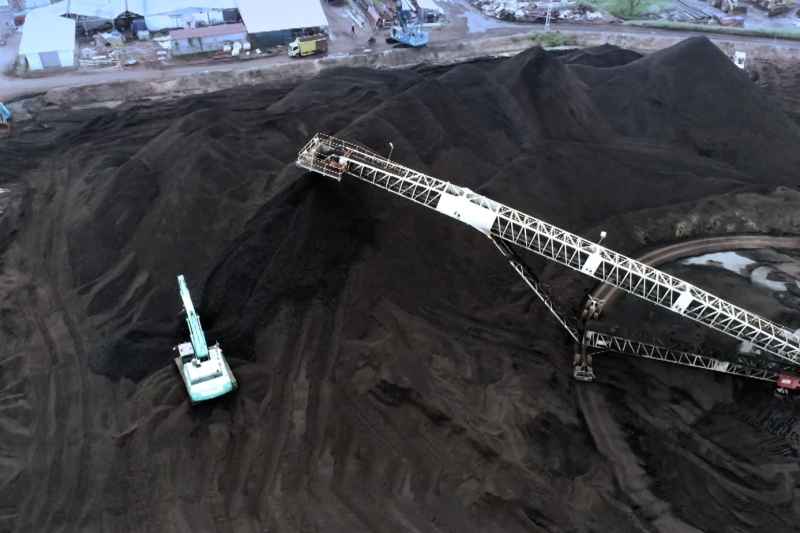The Indonesian government is preparing to implement a new policy regarding Export Proceeds (DHE) from Natural Resources (SDA). This policy mandates that all natural resource exporters must retain 100% of their export proceeds domestically for a minimum of one year. Previously, the regulation only required 30% retention for three months. This move is expected to increase the country's foreign exchange reserves to over US$90 billion.
However, this policy also brings significant implications for the coal and crude palm oil (CPO) industries, which are Indonesia’s largest export sectors. How will coal issuers navigate this regulation? What are the prospects for Titan Infra Sejahtera (TIS), which is preparing for an IPO? This article delves into the impact of the new DHE policy on the energy and infrastructure sectors.
100% DHE Policy: Objectives and Implications
Coordinating Minister for Economic Affairs Airlangga Hartarto stated that the 100% DHE policy aims to enhance Indonesia’s economic resilience by retaining more foreign currency within the country. With this regulation taking effect on March 1 this year, the government hopes to reduce reliance on foreign capital and stabilize the rupiah exchange rate.
For companies in the coal and CPO sectors, this regulation presents specific challenges. Liquidity could be affected as they cannot immediately convert their export proceeds into rupiah. However, on the other hand, the policy could help stabilize domestic commodity prices and reduce currency volatility.
According to research by Mirae Asset Sekuritas and Ciptadana Sekuritas, thermal coal prices are expected to remain high over the next three years, averaging above US$100 per ton. This presents a positive outlook for coal issuers such as PT Bukit Asam Tbk. (PTBA), PT Indo Tambangraya Megah Tbk. (ITMG), and Titan Infra Sejahtera, which are projected to maintain strong performance through 2025.

Titan Infra Sejahtera (TIS): IPO Plans and Business Prospects
Amidst these regulatory changes, Titan Infra Sejahtera (TIS) is gearing up for an initial public offering (IPO). President Director of SLR and SDJ, Victor B. Tanuadji, emphasized that TIS’s primary business focuses on infrastructure rather than mining.
As part of the Titan Infra Energy group, TIS operates in three main business lines:
- Energy Infrastructure – Managing integrated logistics services through SLR and loading port services via SDJ.
- Energy Services – Providing supporting services for the energy industry.
Energy Resources – Engaging in energy distribution and utilization.
Titan Infra Energy’s Operations Director, Suryo Suwignjo, expressed optimism about TIS’s growth prospects. Last year, TIS recorded an EBITDA of US$100 million, which is expected to increase this year. The volume of coal transported via the SLR hauling road and SDJ port also rose from 18 million tons in 2023 to 21 million tons this year. Projections for 2025 indicate an increase to 27 million tons.
While details on the number of shares to be released in the IPO have yet to be disclosed, Suryo confirmed that in accordance with Indonesia Stock Exchange (BEI) regulations, at least 10% of the shares will be made available to the public.
Coal Stock Prospects in the New Regulatory Landscape
In the coming years, coal stocks are expected to remain attractive despite the challenges posed by the 100% DHE policy. Several key factors support the sector’s outlook, including:
- High Coal Prices: With prices expected to remain above US$100 per ton, coal issuers can maintain strong profit margins.
- Robust Global Demand: Despite the transition to green energy, global demand for coal remains high, particularly from major economies such as China and India.
- Stable Financial Performance: Companies like PTBA, ITMG, and Titan Group have solid fundamentals and regularly distribute attractive dividends to investors.
However, there are also several challenges to consider:
- Liquidity Management: With 100% DHE retention, companies must develop stricter cash flow management strategies to ensure sufficient working capital.
- Environmental Regulations: Increasing pressure from global energy transition policies may impact long-term coal demand.
- Rupiah Exchange Rate Fluctuations: The DHE retention policy could influence the rupiah’s value against the US dollar, directly affecting export profits.
The implementation of the 100% DHE policy presents both challenges and opportunities for the coal and CPO sectors. On one hand, the policy aims to strengthen Indonesia’s foreign exchange reserves and economic stability. On the other hand, exporters must adjust their financial strategies to better manage liquidity under the new regulations.
Titan Infra Sejahtera (TIS), which is preparing for its IPO, shows promising potential. With its growing coal logistics volume, TIS could be an attractive investment option for those interested in the energy infrastructure sector.
With coal prices remaining high and global demand holding strong, coal stocks continue to offer lucrative opportunities for investors over the next few years. However, investors should also consider regulatory factors and corporate financial strategies to make well-informed investment decisions.
 Impact of 100% Export Proceeds Policy on Coal Issuers and Titan Infra Sejahtera's IPO Plans
Impact of 100% Export Proceeds Policy on Coal Issuers and Titan Infra Sejahtera's IPO Plans